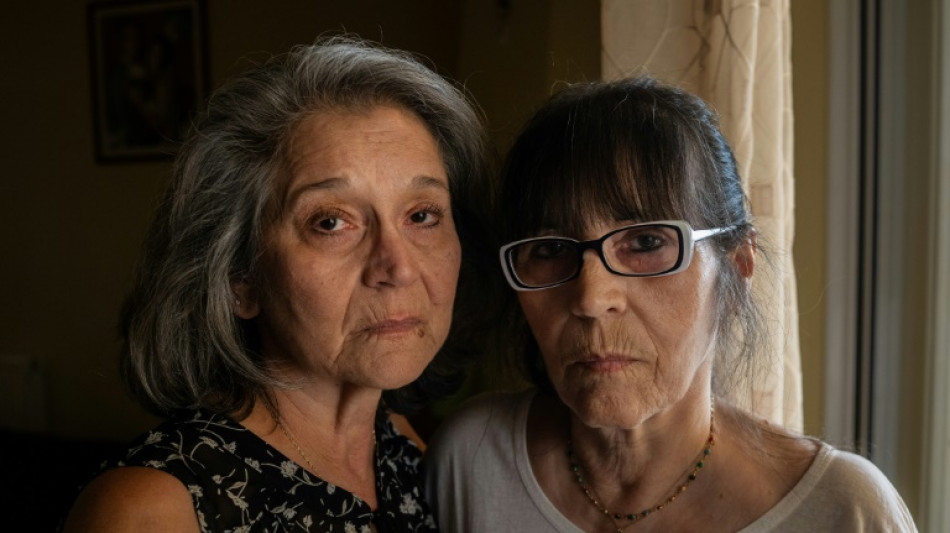
-
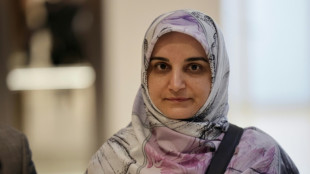 Iranian in possible France prisoner swap jailed for a year
Iranian in possible France prisoner swap jailed for a year
-
US, Ukraine hold talks in Geneva as Russia says 'no deadlines' to end war
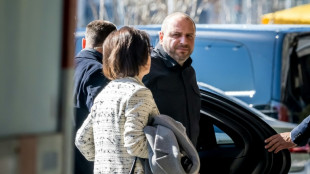
-
 English giants dominate line-up for Champions League last-16 draw
English giants dominate line-up for Champions League last-16 draw
-
Iran, US hold talks in push to avert war
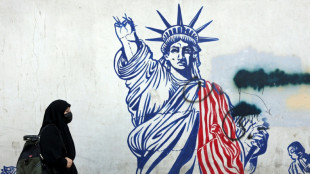
-
 South Africa thrash West Indies in T20 World Cup statement win
South Africa thrash West Indies in T20 World Cup statement win
-
ECB books third straight annual loss
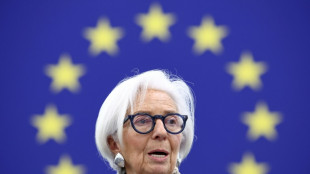
-
 Injury forces Marquez to adapt for MotoGP opener
Injury forces Marquez to adapt for MotoGP opener
-
Booming markets propel Hong Kong exchange's profits to record high

-
 West Indies recover from 83-7 to post to 176-8 against South Africa
West Indies recover from 83-7 to post to 176-8 against South Africa
-
Filmmakers defend Berlin festival chief in Gaza row
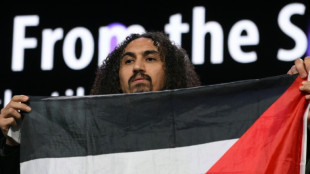
-
 Hong Kong mogul Jimmy Lai wins appeal in fraud case
Hong Kong mogul Jimmy Lai wins appeal in fraud case
-
Iranian in possible prisoner exchange faces 'terrorism' verdict in France
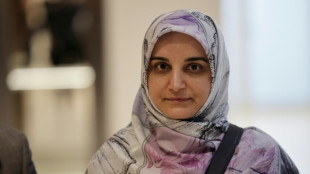
-
 'Street-smart' New Zealand can topple England to make T20 semis: coach
'Street-smart' New Zealand can topple England to make T20 semis: coach
-
Iran-US talks begin in push to avert war
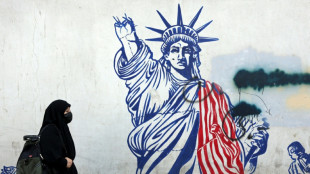
-
 Merz says Germany, China must overcome trade gaps 'together'
Merz says Germany, China must overcome trade gaps 'together'
-
Automaker Stellantis posts massive loss, pivots from EV
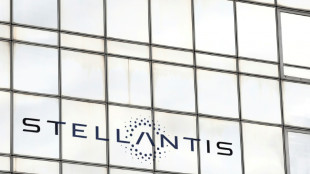
-
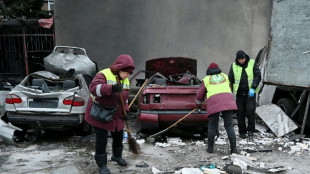 US, Ukraine to meet in Geneva after overnight Russian strikes
US, Ukraine to meet in Geneva after overnight Russian strikes
-
Snake-like robot unveiled for Fukushima debris removal
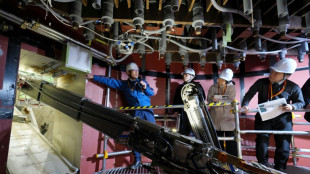
-
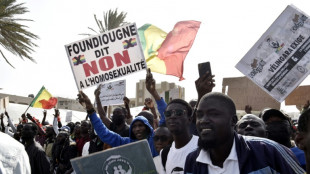 'Public lynching': Senegal cracks down on LGBTQ+ community
'Public lynching': Senegal cracks down on LGBTQ+ community
-
Hong Kong sentences father of wanted activist to 8 months in jail

-
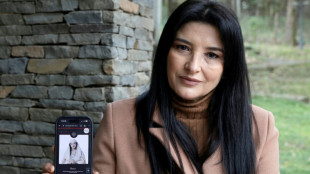 The woman fighting to reclaim her face from Albania's 'AI minister'
The woman fighting to reclaim her face from Albania's 'AI minister'
-
Bulgaria ski station becomes refuge for digital nomads
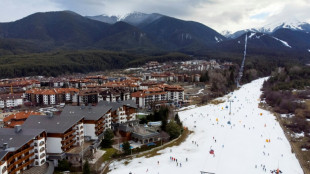
-
 Thai runner-up party seeks criminal case against election officials
Thai runner-up party seeks criminal case against election officials
-
North Korea's Kim shuns South but could 'get along' with US

-
 Spurs win 10th straight, Pistons silence Thunder in battle of NBA's best
Spurs win 10th straight, Pistons silence Thunder in battle of NBA's best
-
Germany's Merz visits China AI hub hoping for business deals

-
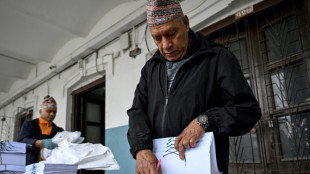 Post-uprising polls won't shake Nepal's delicate India-China balance
Post-uprising polls won't shake Nepal's delicate India-China balance
-
S.Korea's Park Chan-wook to head Cannes festival jury

-
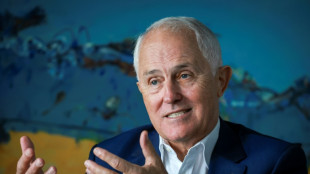 Australian ex-PM says 'more important than ever' to ditch UK monarchy
Australian ex-PM says 'more important than ever' to ditch UK monarchy
-
Dressed for succession? Kim Jong Un, daughter fuel speculation with matching coats

-
 US-Ukraine talks to open in Geneva after overnight Russian strikes
US-Ukraine talks to open in Geneva after overnight Russian strikes
-
Export ban sparks rush to process lithium in Zimbabwe
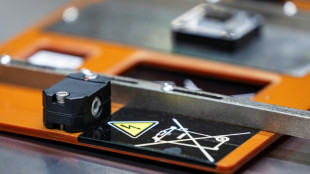
-
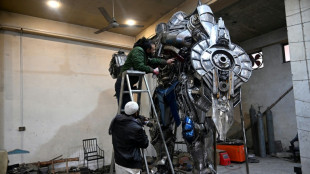 Pakistani sculptor turns scrap into colossal metal artworks
Pakistani sculptor turns scrap into colossal metal artworks
-
Epstein files reveal links to cash, women, power in Africa
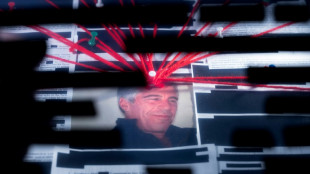
-
 Where are Southeast Asia's data centres?
Where are Southeast Asia's data centres?
-
Where AI lives: Southeast Asia's data centre boom

-
 Seoul hits fresh record on mixed day for Asia markets
Seoul hits fresh record on mixed day for Asia markets
-
Kyiv residents pool together for solar panels and batteries amid Russian strikes

-
 North Korea's Kim says could 'get along' with US but shuns South
North Korea's Kim says could 'get along' with US but shuns South
-
Cuba kills four on US-registered speedboat trying to 'infiltrate'

-
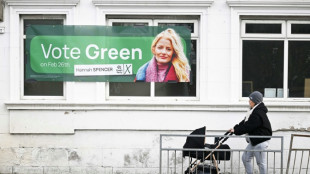 UK Labour party threatened by hard-right, leftists in heartland
UK Labour party threatened by hard-right, leftists in heartland
-
Australian PM sorry after saying sexual assault survivor 'difficult'

-
 Kim Jong Un spurns olive branch from 'hostile' South Korea
Kim Jong Un spurns olive branch from 'hostile' South Korea
-
DR Congo sanctuary resists bloody forest sell-off

-
 North Korea looking to replicate youth success at Women's Asian Cup
North Korea looking to replicate youth success at Women's Asian Cup
-
Deal or no deal: What's the state of Trump's tariffs?

-
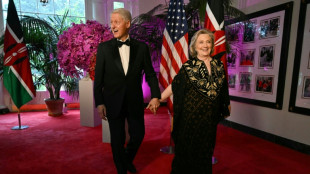 Hillary Clinton to testify in US House panel's Epstein probe
Hillary Clinton to testify in US House panel's Epstein probe
-
African migrants won legal protections - then Trump deported them

-
 US women's ice hockey captain responds to 'distasteful' Trump remark
US women's ice hockey captain responds to 'distasteful' Trump remark
-
US presses missile issue as new Iran talks to open in Geneva


Adopted in US, Greek Cold War kids find long-lost families
Robyn Bedell Zalewa grew up and spent all her adult life in the United States, but is part of a little-known chapter of Greek history -- the adoption of some 4,000 infants during the Cold War.
Always knowing she came from Greece, she rediscovered her long-lost sister Sophia, who lives in the Athens area, and regained her Greek nationality two years ago.
Connecticut-based Robyn goes by the name of Joanna when in Greece.
There's just one snag.
Her sister Sophia only speaks Greek, so the siblings communicate through an online translator tool.
"What hurts me the most is not being able to have a conversation with Sophia," the 68-year-old told AFP.
At the close of the Second World War and a brutal occupation by Nazi Germany, Greece was consumed by civil strife between royalists and communists that saw fighting continue until 1949.
With thousands of Greek families plunged into disaster and poverty, an adoption movement gained momentum in the 1950s and 1960s, which saw babies and children sent abroad for adoption, mainly in the United States.
Gonda Van Steen, director of the Centre for Hellenic Studies at King's College London, told AFP that Greece "was the main country of origin of children adopted in the US in the early 1950s".
"American childless couples were willing to pay any price for a healthy white newborn," said Van Steen, who has conducted extensive research and authored a book on the subject.
Greek-American Mary Cardaras campaigned for years so that children born in Greece, who are now in their sixties or seventies, could retrieve their birth nationality.
"What followed (the first adoptions in Greece) was a tsunami of international adoptions," she said, citing in particular China, Vietnam, Russia and especially South Korea, where at least 140,000 children were adopted by foreign parents between 1955 and 1999.
- 'A better life' -
In Greece, the biological mothers of adopted children were often impoverished widows, some of whom had been raped, or faced social stigmatisation for having a child out of wedlock.
"They saw no other solution than to give the child away for him or her to have 'a better life'," Van Steen said.
Greece simplified in May the process of obtaining birth documents to specifically enable individuals adopted until 1976 to regain Greek nationality.
On the terrace of an Athens café, Bedell Zalewa proudly pulls her Greek passport and identity card from her handbag.
Even though she had her adoption certificate -- not all children did -- she began the process well before new regulations were implemented and had to wait a long time before regaining Greek citizenship.
"I always knew I had been adopted in Greece," said the pensioner who was born in Messini, in the Peloponnese region, before being adopted in Texas.
"What I've wanted my entire life is to find my family," said Bedell Zalewa, her eyes welling up.
Her story is one of a tenacious search for one's roots.
Bedell Zalewa found her brothers and sister and even met her biological mother before she passed away.
As the youngest of five, she was apparently given up for adoption because her widowed mother was too poor to raise her.
The ties she has forged in Greece encourage her to stay there whenever she can.
Cardaras, the retired journalist who was adopted in the Chicago area and lived for a long time in California, also always knew that she was of Greek origin.
She kept her Greek birth passport, which was originally revoked when she left the country as a baby.
- Faces on the street -
When she returned to her native country for the first time on a summer vacation in 1972, she remembers looking "at every woman's face" on the street.
"I wondered... if she was my mother," she said.
Everything felt familiar to her: "The smells, the atmosphere, I was completely at home."
"But it was only when my (adoptive) parents died that I really began to question the first months and years of my life," Cardaras said.
Now settled in Athens, she is taking Greek classes and is making progress in understanding her native language.
Better access to Greek nationality constitutes a deeply emotional breakthrough for adoptees with fragmented backgrounds.
One of them recently shared their experience on social media.
"At 12:47 PM Greek time, I received a message announcing that I am now reinstated as a Greek citizen! I am overwhelmed with emotion, thrilled, and on cloud nine!" Stephanie Pazoles wrote on Facebook.
D.Sawyer--AMWN


